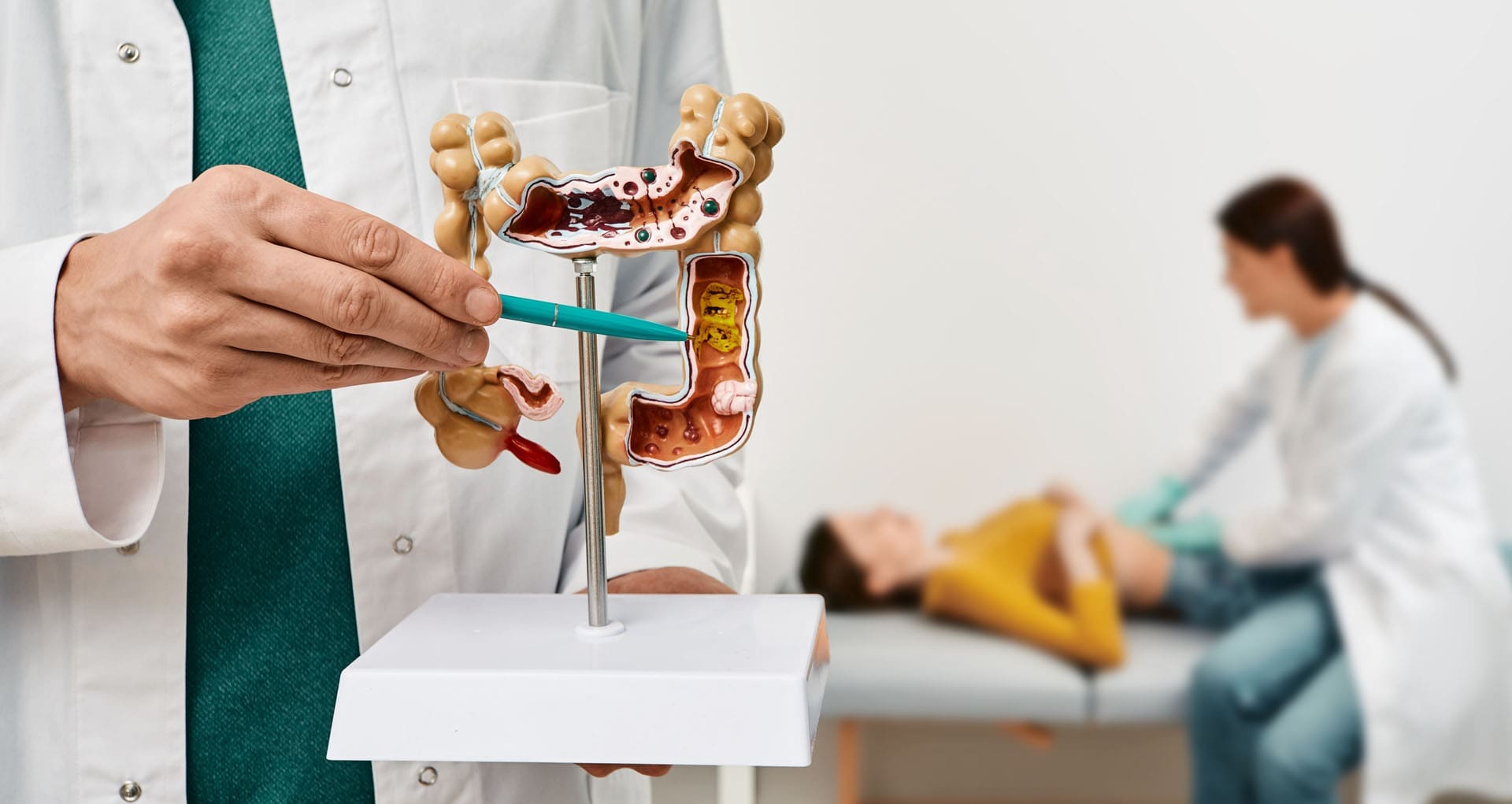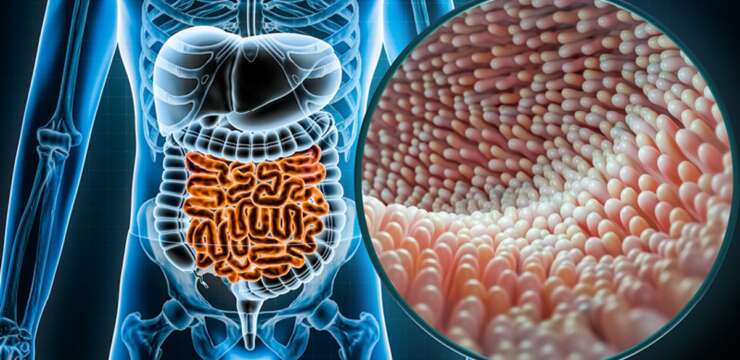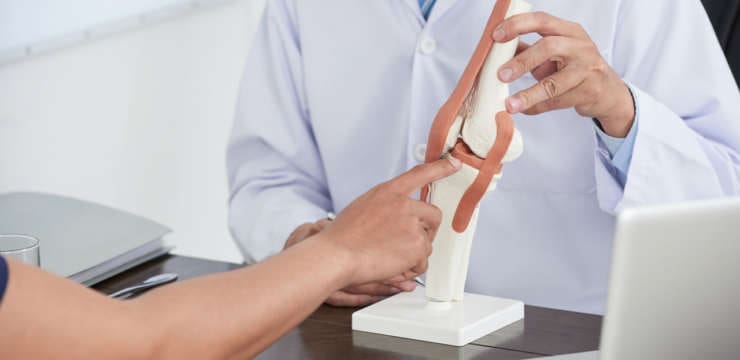
Table of Contents
Chiropractic and Integrative Care for Optimal Health

The Power of Gut Health
Imagine your gut as a bustling community of tiny helpers—billions of bacteria working to digest food, boost your immune system, and keep your energy high. When balanced, this gut microbiome supports everything from clear thinking to fighting off colds. But when harmful bacteria take over, a condition called dysbiosis can cause bloating, tiredness, or even bigger health issues (Cleveland Clinic, 2023a). Dysbiosis stems from poor diet, antibiotics, stress, and environmental toxins like alcohol, which wipe out good bacteria and let bad ones thrive (Mayo Clinic, 2023).
At El Paso’s Health Coach Clinic – Functional Medicine and Wellness, Dr. Alexander Jimenez, DC, APRN, FNP-BC, uses chiropractic care and integrative therapies like nutrition, exercise, and acupuncture to restore gut balance naturally. His approach helps patients recover from injuries and improve overall health (Jimenez, n.d.a). This article explores how unhealthy bacteria form, their impact, and how Dr. Jimenez’s holistic methods at the clinic promote gut wellness for lasting vitality.
Your Gut Microbiome: A Key to Wellness
The gut microbiome is a team of trillions of microbes—bacteria, fungi, and more—living mostly in your large intestine. They break down fibers from food, creating short-chain fatty acids that strengthen your gut lining and fuel your body (Cleveland Clinic, 2023b). A balanced microbiome trains your immune system to fight germs without overreacting and supports heart health by managing cholesterol and blood sugar (Northwestern Medicine, n.d.). It also connects to your brain through the gut-brain axis, producing mood-boosting chemicals like serotonin (USDA ARS, n.d.).
When imbalanced, the gut can contribute to obesity, diabetes, or mood swings (Davidson et al., 2014). A diverse microbiome is resilient, but modern lifestyles—low-fiber diets, stress, or toxins—reduce diversity, raising disease risks (UMass Memorial Health, n.d.). A healthy gut means better digestion, stronger immunity, and more energy, as it absorbs nutrients like vitamin B-12 to combat fatigue (GoodRx, 2023).
What Causes Gut Imbalance?
Dysbiosis occurs when harmful bacteria outgrow the beneficial ones, driven by diet, medications, and lifestyle. Eating too much sugar or processed foods starves beneficial bacteria of fiber, allowing harmful ones like E. coli to multiply and produce toxins that irritate the gut (Healthline, 2023). Processed food additives can weaken the gut lining, letting bacteria leak and spark inflammation (Cleveland Clinic, 2023b). A low-plant diet cuts bacterial diversity by up to 30% (Davidson et al., 2014).
Antibiotics kill harmful bacteria but can also destroy beneficial ones, leading to issues like small intestinal bacterial overgrowth (SIBO), where bacteria grow excessively in the small intestine (Mayo Clinic, 2023). A single antibiotic course can disrupt balance for months (USDA ARS, n.d.). Other drugs, like painkillers or antacids, alter gut pH, favoring harmful bacteria (GoodRx, 2023).
Stress raises cortisol, slowing digestion and letting harmful bacteria thrive (Better Health Channel, n.d.). Poor sleep reduces good bacteria by about 20%, while alcohol and smoking poison the microbiome (UMass Memorial Health, n.d.). Environmental toxins, like pollutants, further harm diversity (Northwestern Medicine, n.d.). Dysbiosis can cause bloating, irregular bowel movements, or inflammation, which increases the risk of arthritis or infections (Cleveland Clinic, 2023a).
Recognizing Gut Health Problems
An unbalanced gut shows up in clear ways. Bloating after meals often comes from harmful bacteria fermenting food, creating gas (Healthline, 2023). Constipation or diarrhea signals a microbiome out of sync, as beneficial bacteria regulate digestion (Cleveland Clinic, 2023a). Fatigue can hit when nutrients aren’t absorbed well (GoodRx, 2023).
Skin issues, like acne or rashes, may stem from a leaky gut, where toxins escape into the bloodstream (UMass Memorial Health, n.d.). Mood swings or anxiety can reflect low serotonin from gut imbalance (USDA ARS, n.d.). Weight changes occur when bacteria alter calorie absorption (Davidson et al., 2014). In the long term, dysbiosis raises risks for diabetes, heart disease, or joint pain from inflammation (Northwestern Medicine, n.d.). Spotting early signs, like frequent gas, helps you act fast.
Feeding Your Gut Right
Food is a game-changer for gut health. High-fiber foods like broccoli, berries, or oats feed beneficial bacteria, producing anti-inflammatory fatty acids (Healthline, 2023). Fermented foods—yogurt, kefir, or sauerkraut—deliver probiotics to outcompete harmful bacteria (Penn State Health News, 2018). Aim for 25-30 grams of fiber daily from whole grains, fruits, and vegetables to boost diversity (GoodRx, 2023).
Sugary snacks or processed foods fuel harmful bacteria, causing energy dips and cravings (Cleveland Clinic, 2023b). Swap them for gut-friendly options, like berries for snacks or beans in meals. Staying hydrated flushes toxins, aiding digestion (Better Health Channel, n.d.). A Mediterranean diet—rich in plants, fish, and nuts—reduces dysbiosis risks and restores balance quickly (Northwestern Medicine, n.d.).
Lifestyle Choices for Gut Support
Daily habits shape your microbiome. Stress increases cortisol, which slows digestion and harms good bacteria (UMass Memorial Health, n.d.). Try 10-minute deep breathing or walks to relax. Sleeping seven to nine hours nightly supports bacterial diversity, as less sleep reduces beneficial bacteria (USDA ARS, n.d.).
Exercise, like 30 minutes of walking or yoga, boosts gut blood flow, encouraging healthy bacteria (Penn State Health News, 2018). Avoid smoking and limit alcohol, as both disrupt the microbiome (Cleveland Clinic, 2023a). Handwashing prevents harmful germs from entering the gut (GoodRx, 2023). These changes can improve gut health in weeks.
Dr. Jimenez’s Expertise: Injuries and Gut Health
At El Paso’s Health Coach Clinic, Dr. Alexander Jimenez, DC, APRN, FNP-BC, connects physical injuries to gut imbalances. His dual expertise as a chiropractor and nurse practitioner shows how trauma from motor vehicle accidents (MVAs), sports, or work injuries disrupts the nervous system, slowing digestion and promoting dysbiosis (Jimenez, n.d.b). “Injuries stress the body, impacting gut function,” he explains (Jimenez, n.d.a).
Using advanced diagnostics, Dr. Jimenez combines neuromusculoskeletal imaging, like X-rays, with blood tests to detect inflammation linked to gut issues. A workplace injury, for example, might pinch nerves controlling digestion, causing bloating. His clinic treats these with non-surgical methods: spinal adjustments to restore nerve function, ultrasound to reduce swelling, and exercises to strengthen core muscles (Jimenez, n.d.b). For MVA cases, he provides detailed medical-legal documentation, working with specialists for seamless claims.
Integrative therapies enhance recovery. Massage improves gut circulation, acupuncture reduces inflammation, and nutrition plans with fiber and probiotics rebuild beneficial bacteria (Jimenez, n.d.a). A patient with a sports injury experienced digestive issues that resolved through adjustments and a fiber-rich diet. Dr. Jimenez focuses on root causes, like poor posture, to prevent chronic gut problems and boost vitality.
Chiropractic Care for Gut Balance
Chiropractic care supports the gut by correcting spinal misalignments that disrupt nerve signals to the digestive system. Subluxations can slow gut motility, leading to bloating or dysbiosis (Jimenez, n.d.a). Adjustments restore nerve communication, improving digestion and easing symptoms in weeks (Cleveland Clinic, 2023a). They also calm the gut-brain axis, reducing stress hormones like cortisol that harm beneficial bacteria (USDA ARS, n.d.). Paired with nutrition, chiropractic care speeds microbiome recovery.
Holistic Therapies for Gut Wellness
The clinic’s integrative approach combines natural methods. Exercise, like core-focused yoga, speeds digestion and flushes harmful bacteria (Penn State Health News, 2018). Massage relaxes abdominal muscles, boosting gut circulation (Jimenez, n.d.b). Acupuncture targets points to reduce inflammation and improve motility (Jimenez, n.d.a). These therapies, alongside chiropractic adjustments, address injury-related gut issues and prevent conditions like SIBO.
Supporting Gut Health with Supplements
Probiotics, such as Lactobacillus, introduce beneficial bacteria to combat dysbiosis, while prebiotics like garlic support their growth (Healthline, 2023). Omega-3 supplements reduce gut inflammation (GoodRx, 2023). Dr. Jimenez customizes these based on diagnostic tests, ensuring they match patient needs (Jimenez, n.d.b). Consult a healthcare provider before starting supplements.
Preventing Long-Term Gut Problems
Preventing chronic gut issues post-injury requires ongoing care. Dr. Jimenez’s plans include regular exercises to maintain spinal alignment, massage for stress relief, and gut-friendly diets to avoid dysbiosis recurrence (Jimenez, n.d.a). Monitoring symptoms like bloating helps adjust care, ensuring lasting gut health.
Real-Life Success Stories
At the Health Coach Clinic, a patient with an MVA-related back injury saw bloating resolve after adjustments and probiotic-rich meals. A cyclist with gut issues from a sports injury recovered through acupuncture and exercise. These stories show the power of integrative care.
Conclusion
A balanced gut drives energy, immunity, and mood, but dysbiosis from diet, stress, or injuries lets harmful bacteria thrive. At El Paso’s Health Coach Clinic, Dr. Alexander Jimenez uses chiropractic care, nutrition, exercise, and acupuncture to restore gut wellness. Start with small steps—eat more fiber, move daily, and visit the clinic. Your gut will reward you with better health and vitality.
References
Better Health Channel. (n.d.). Gut health. www.betterhealth.vic.gov.au/health/healthyliving/gut-health
Cleveland Clinic. (2023a). Dysbiosis. my.clevelandclinic.org/health/diseases/dysbiosis
Cleveland Clinic. (2023b). Gut microbiome. my.clevelandclinic.org/health/body/25201-gut-microbiome
Davidson, J., et al. (2014). 20 things you didn’t know about the human gut microbiome. PMC, 2(3), 165–168. pmc.ncbi.nlm.nih.gov/articles/PMC4191858/
GoodRx. (2023). Good gut bacteria vs. bad gut bacteria. www.goodrx.com/well-being/gut-health/good-bad-bacteria-gut-health
Healthline. (2023). Gut microbiome and health. www.healthline.com/nutrition/gut-microbiome-and-health
Jimenez, A. (n.d.a). Injury specialists. dralexjimenez.com/
Jimenez, A. (n.d.b). Dr. Alexander Jimenez, DC, APRN, FNP-BC. www.linkedin.com/in/dralexjimenez/
Mayo Clinic. (2023). Small intestinal bacterial overgrowth (SIBO). www.mayoclinic.org/diseases-conditions/small-intestinal-bacterial-overgrowth/symptoms-causes/syc-20370168
Northwestern Medicine. (n.d.). What does your gut microbiome have to do with your health? www.nm.org/healthbeat/healthy-tips/what-does-gut-microbiome-have-to-do-with-your-health
Penn State Health News. (2018). Small changes make big differences in digestion. pennstatehealthnews.org/2018/03/the-medical-minute-small-changes-make-big-differences-in-digestion/
UMass Memorial Health. (n.d.). Dysbiosis: Your microbiome out of balance. www.ummhealth.org/simply-well/dysbiosis-your-microbiome-out-of-balance
USDA ARS. (n.d.). Keeping a healthy gut. www.ars.usda.gov/oc/utm/keeping-a-healthy-gut/
Disclaimers
Professional Scope of Practice *
The information herein on "Balancing Your Gut and Boosting Your Immunity" is not intended to replace a one-on-one relationship with a qualified health care professional or licensed physician and is not medical advice. We encourage you to make healthcare decisions based on your research and partnership with a qualified healthcare professional.
Blog Information & Scope Discussions
Welcome to El Paso's wellness blog, where Dr. Alex Jimenez, DC, FNP-C, a board-certified Family Practice Nurse Practitioner (FNP-C) and Chiropractor (DC), presents insights on how our team is dedicated to holistic healing and personalized care. Our practice aligns with evidence-based treatment protocols inspired by integrative medicine principles, similar to those found on dralexjimenez.com, focusing on restoring health naturally for patients of all ages.
Our areas of chiropractic practice include Wellness & Nutrition, Chronic Pain, Personal Injury, Auto Accident Care, Work Injuries, Back Injury, Low Back Pain, Neck Pain, Migraine Headaches, Sports Injuries, Severe Sciatica, Scoliosis, Complex Herniated Discs, Fibromyalgia, Chronic Pain, Complex Injuries, Stress Management, Functional Medicine Treatments, and in-scope care protocols.
Our information scope is limited to chiropractic, musculoskeletal, physical medicine, wellness, contributing etiological viscerosomatic disturbances within clinical presentations, associated somato-visceral reflex clinical dynamics, subluxation complexes, sensitive health issues, and functional medicine articles, topics, and discussions.
We provide and present clinical collaboration with specialists from various disciplines. Each specialist is governed by their professional scope of practice and their jurisdiction of licensure. We use functional health & wellness protocols to treat and support care for the injuries or disorders of the musculoskeletal system.
Our videos, posts, topics, subjects, and insights cover clinical matters, issues, and topics that relate to and directly or indirectly support our clinical scope of practice.*
Our office has reasonably attempted to provide supportive citations and has identified the relevant research studies or studies supporting our posts. We provide copies of supporting research studies available to regulatory boards and the public upon request.
We understand that we cover matters that require an additional explanation of how they may assist in a particular care plan or treatment protocol; therefore, to discuss the subject matter above further, please feel free to ask Dr. Alex Jimenez, DC, APRN, FNP-BC, or contact us at 915-850-0900.
We are here to help you and your family.
Blessings
Dr. Alex Jimenez DC, MSACP, APRN, FNP-BC*, CCST, IFMCP, CFMP, ATN
email: coach@elpasofunctionalmedicine.com
Licensed as a Doctor of Chiropractic (DC) in Texas & New Mexico*
Texas DC License # TX5807
New Mexico DC License # NM-DC2182
Licensed as a Registered Nurse (RN*) in Texas & Multistate
Texas RN License # 1191402
ANCC FNP-BC: Board Certified Nurse Practitioner*
Compact Status: Multi-State License: Authorized to Practice in 40 States*
Graduate with Honors: ICHS: MSN-FNP (Family Nurse Practitioner Program)
Degree Granted. Master's in Family Practice MSN Diploma (Cum Laude)
Dr. Alex Jimenez, DC, APRN, FNP-BC*, CFMP, IFMCP, ATN, CCST
My Digital Business Card






